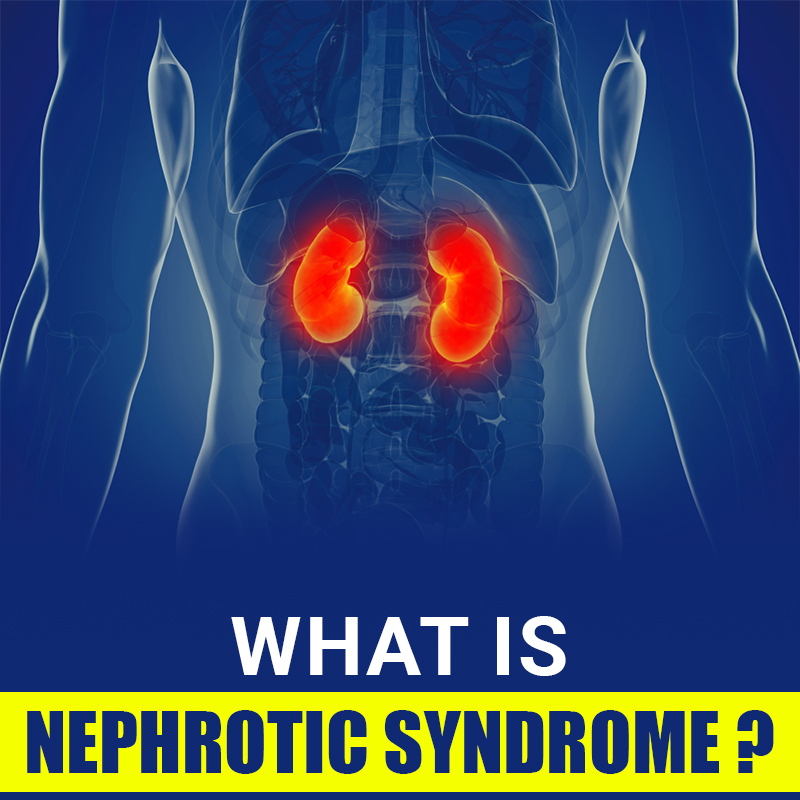Nephrotic Syndrome: Causes, Evaluation & Ayurvedic Treatment
The expression "nephrotic disorder" indicates a gathering of symptoms and with specific sorts of kidney (renal) dysfunction that may lead to:
- Elevated levels of protein in the urine
- Low levels of protein in the blood
Swelling, also known as edema, in different body parts such as the face, legs, or lower legs because of the unusual accumulation of waste liquid in the tissues, generally accompanied by weight gain.
In this write-up, we will talk about the causes, evaluation, and Ayurvedic medicine for Nephrotic Syndrome.
How does Nephrotic Syndrome develop?
Nephrotic Syndrome is developed when Glomeruli (a structure in the kidneys that work to filter the blood) damages. This damage permits proteins in the blood, (for example, albumin) to leak in the urine, causing proteinuria.
How is Glomeruli Harmed?
Many various problems can damage the glomeruli, giving birth to Nephrotic Syndrome. At times, this damage limits to the kidneys only, but in different cases, organs other than the kidney are also harmed, (for example, in diabetes mellitus or basic lupus erythematosus):
In youngsters, the most widely recognized reason for glomerular damage is a condition known as minimal change disease.
In grown-ups, around 30% of individuals with Nephrotic Syndrome have a hidden chronic ailment, for example, diabetes or lupus. The excess cases are because of kidney issues, for example, minimal change disease, focal segmental glomerulosclerosis (FSGS), or membranous nephropathy.
Minimal Change Disease - Minimal change disease is a kidney disease that can happen in both grown-ups and youngsters. Individuals with minimal change disease have ordinary or moderate dysfunction of the glomeruli.
Focal Segmental Glomerulosclerosis - In grown-ups, Focal Segmental Glomerulosclerosis (FSGS) is a prevalent reason for Nephrotic Syndrome. FSGS causes breakdown and scarring of glomeruli. However, the reason for fundamental FSGS is obscure, albeit a few cases are the consequence of a hereditary deformity, infection, or a harmful reaction to a medication.
Membranous Nephropathy - Membranous Nephropathy is a condition wherein the glomerular veins become thickened due to protein accumulation, causing significant dysfunction. It isn't clear why Membranous Nephropathy develops in the vast majority, however, an auto-immune issue is suspected.
Diabetes Mellitus - Kidney dysfunction is prevalent in individuals with diabetes who have persistently raised blood glucose levels and hypertension. A few patients with further developed illnesses can create Nephrotic Syndrome.
Lupus - Lupus is an illness that can influence different organs of the body, including the kidney. Nephrotic Syndrome is common in individuals with advanced lupus.
Symptoms of Nephrotic Syndrome
The most widely recognized indications of Nephrotic Syndrome are:-
- Swelling
- Weight Gain
- Weakness
- Blood Clots
- Infections
- Kidney failure in deteriorated cases
- Proteinuria, that may prompt foamy or bubbly urine
Diagnosis of Nephrotic Syndrome
The diagnosis of Nephrotic Syndrome is dependent on various lab-based tests, including urine and blood tests.
Urine test - Urine tests are regularly done to decide the amount of protein leaked into the urine.
Blood tests - Your health expert may prescribe various blood tests to help decide the hidden reason for Nephrotic Syndrome, and the damage incurred.
Renal biopsy - Renal (kidney) biopsy is the standard method for deciding the hidden reason for Nephrotic Syndrome, wherein a kidney tissue is extracted, and analyzed using a microscope.
Nephrotic Syndrome Ayurvedic Treatment
Ayurvedic cures are most beneficial for kidney disease. Ayurveda is considered an ancient practice for the treatment of all types of physical ailments with the use of natural herbs and techniques. The most common herbs used in Ayurvedic treatment include Milk, Thistle, Astragulus, Licorice Root, Punarnava, Gokshur, etc.
These are uncultivated herbs and work extensively to regenerate kidney cells and restrict kidney growth. Also known for kidney treatment, it strives to eliminate kidney disease without dialysis and transplant.




Comments
Post a Comment